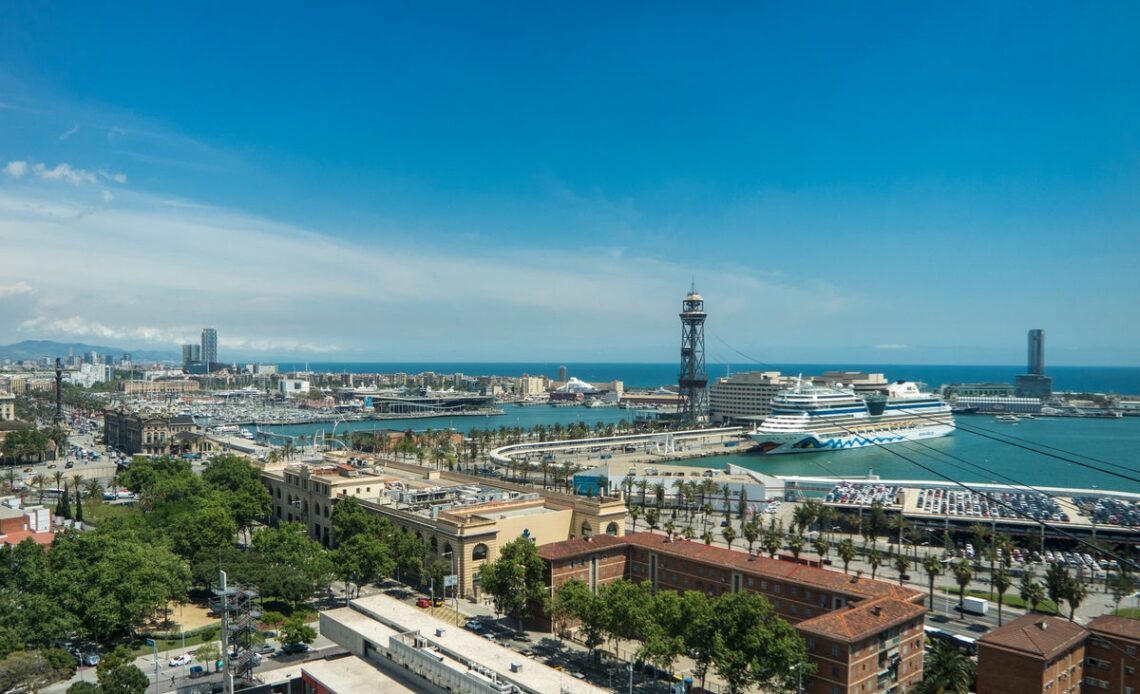Cruise ships were responsible for more than four times the sulphuric emissions into Europe’s atmosphere than all of the continent’s car last year, according to a new report.
This comes despite repeated pledges by the industry to move towards a greener model of operating.
Research from Transport & Environment, who describe themselves as a “clean transport campaign group”, shows 509 tonnes of sulphur oxides were emitted by the 218 cruise vessels sailing in Europe last year. This is up from pre-pandemic levels of 465 tonnes.
Although a cap on sulphur in marine fuels, introduced by the UN in 2020, has cut emissions per tonnes of fuel consumed, the addition of new ships to existing fleets means that overall emissions have increased – although passenger levels are not yet at pre-pandemic in Europe.
Barcelona was Europe’s most polluted port last year followed by Civitavecchia, a coastal port northwest of Rome and the Athenian port of Piraeus.
In better news, Venice – the most cruise-polluted port in 2019 – dropped to 41st in the list last year following a ban on large cruise ships entering the port that was introduced in 2021, leading to an 80 per cent fall in sulphur oxide emissions.
In the UK, Southampton ranked as Europe’s seventh most-polluted port in terms of cruise ship air pollution, with just 45 ships responsible for almost 10 times more harmful pollutants than all of the city’s 93,000 cars.
Constance Dijkstra, shipping campaigner at Transport & Environment, said: “The pandemic provided some respite for port cities, but this is now well and truly over. Cruising is back and tourist hotspots like Barcelona and Athens are again choking on toxic air pollution from cruise ships.
“Venice has shown that tackling cruise ship pollution is possible, but bans aren’t the only way. Ports can significantly reduce pollution levels by forcing ships to plug into electricity at the port instead of running their engines, and by supporting the adoption of zero-emission fuels.”
Jon Hood, Transport & Environment’s UK sustainable shipping manager, said: “With the government currently revising its flagship green shipping plan we have the perfect opportunity to finally get serious about addressing shipping pollution.
“That means switching away from filthy fossil fuels and onto clean, zero emission fuels like green hydrogen, and…
Click Here to Read the Full Original Article at The Independent Travel…
